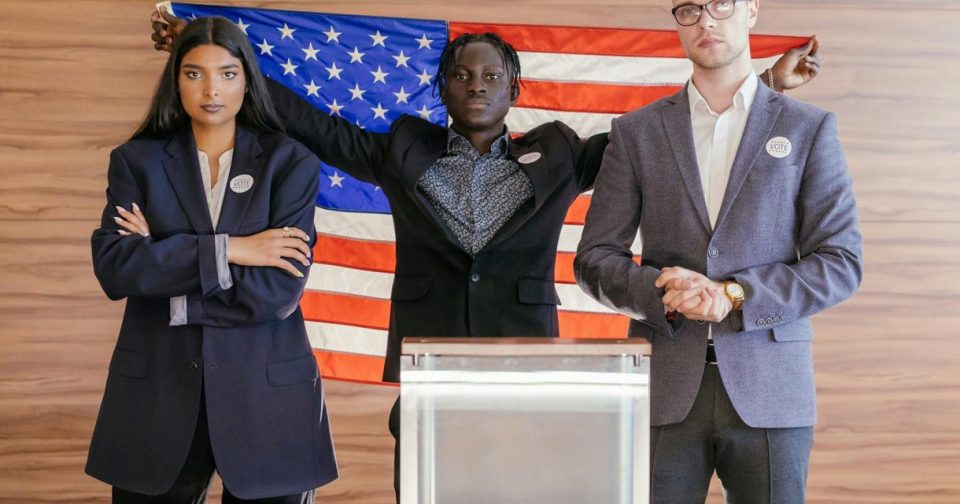photo courtesy Mikhail Nilov on Pexels.com
Let’s address some misconceptions about third-party candidates, particularly the claim that they only run during major election cycles and fail to focus on local offices (link). The reality is that third party candidates face much bigger challenges and require much more sophisticated strategies than duopoly candidates. Here’s the truth:
Libertarians are running locally.
Contrary to the claim (link) that third-party candidates only pursue high-profile races, the Libertarian Party supported 774 candidates for federal, state, and local-level offices across the country during the 2022 election cycle. There are currently 177 elected Libertarians holding office. See the South Carolina slate of Libertarian candidates in the 2024 election here.
Libertarians are committed to grassroots politics. Even in non-partisan races, positions on school boards, city councils, and county commissions are regularly pursued by our candidates bringing libertarian ideas and values to the local level. Our involvement in local elections – as candidates, volunteers, advocates, and proxies demonstrates our passion for engaging with the issues that impact everyday lives.
Higher office runs earn expanded ballot access.
Running for higher offices like governor or president, is often seen as impractical or a publicity stunt for third-party candidates. But it’s a crucial strategy. In many states, third-party candidates need to meet certain thresholds in higher-profile elections to maintain ballot access. Without these high-level races, Libertarians are required to meet onerous petitioning requirements. By fielding candidates for these offices – no matter the long-shot – they are ensuring future candidates don’t have to jump through unnecessary hoops just to participate.
Media bias plays a major role.
A significant reason why third-party candidates appear less prominent is because they are virtually ignored by mainstream media. Major networks and news outlets focus almost exclusively on Democratic and Republican candidates, leaving third-party voices unheard. This media blackout means that even though Libertarians are active in local elections and championing issues that resonate with many voters, their efforts go unheard. The lack of coverage skews public perception, making it appear that third-party candidates are absent or inactive when, in reality, they are on an uphill climb against this media bias.
Breaking the duopoly is hard.
Third-party candidates are often criticized for not building support over time, but this ignores the significant barriers placed in their path by the two major parties. Both Republicans and Democrats benefit from entrenched systems that make it difficult for alternative parties to rise. Whether it’s restrictive ballot access laws, debate exclusions, district gerrymandering, or media blackout, the deck is stacked against third-party candidates. Despite these obstacles, Libertarians and other third-party members continue to push for a more open and competitive political environment.
It is our assertion that candidates belong in the arena. No candidate should run unopposed. Voters need choices. The notion that there is some hierarchy of worthiness, some path candidates must travel before they are legitimate contenders is further evidence of the arrogance of the duopoly.
Far from being “unserious” or “occasional” contenders, third-party candidates, especially Libertarians, are deeply engaged in both local and national politics. Criticism that they only show up for the big elections is misinformed. Voters should recognize the vital role third-party candidates play in the democratic process. The duopoly recognizes it, or they wouldn’t be trying to keep us out.
To learn more about the SCLP click here.
To support our slate of South Carolina candidates, click here.

